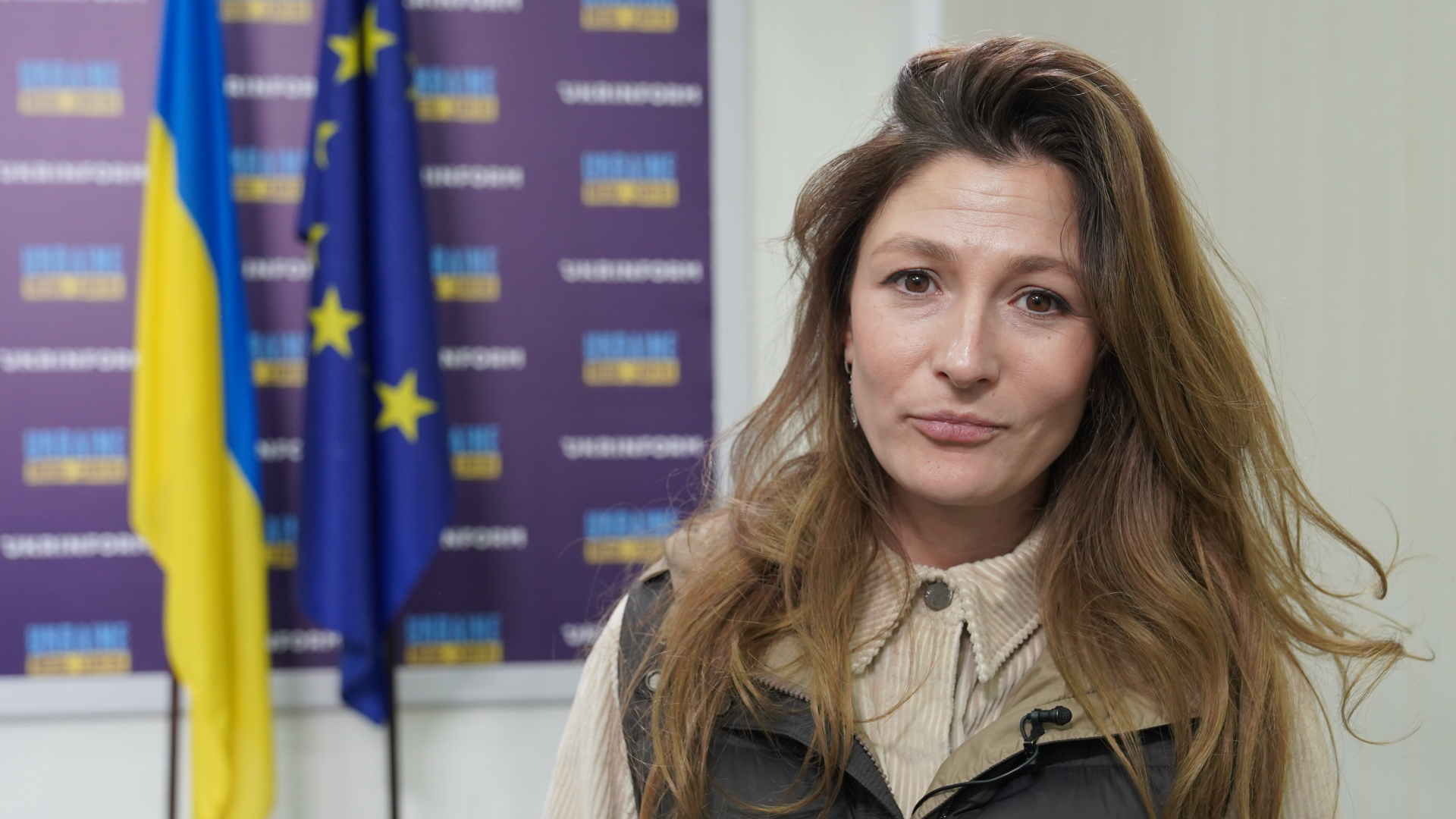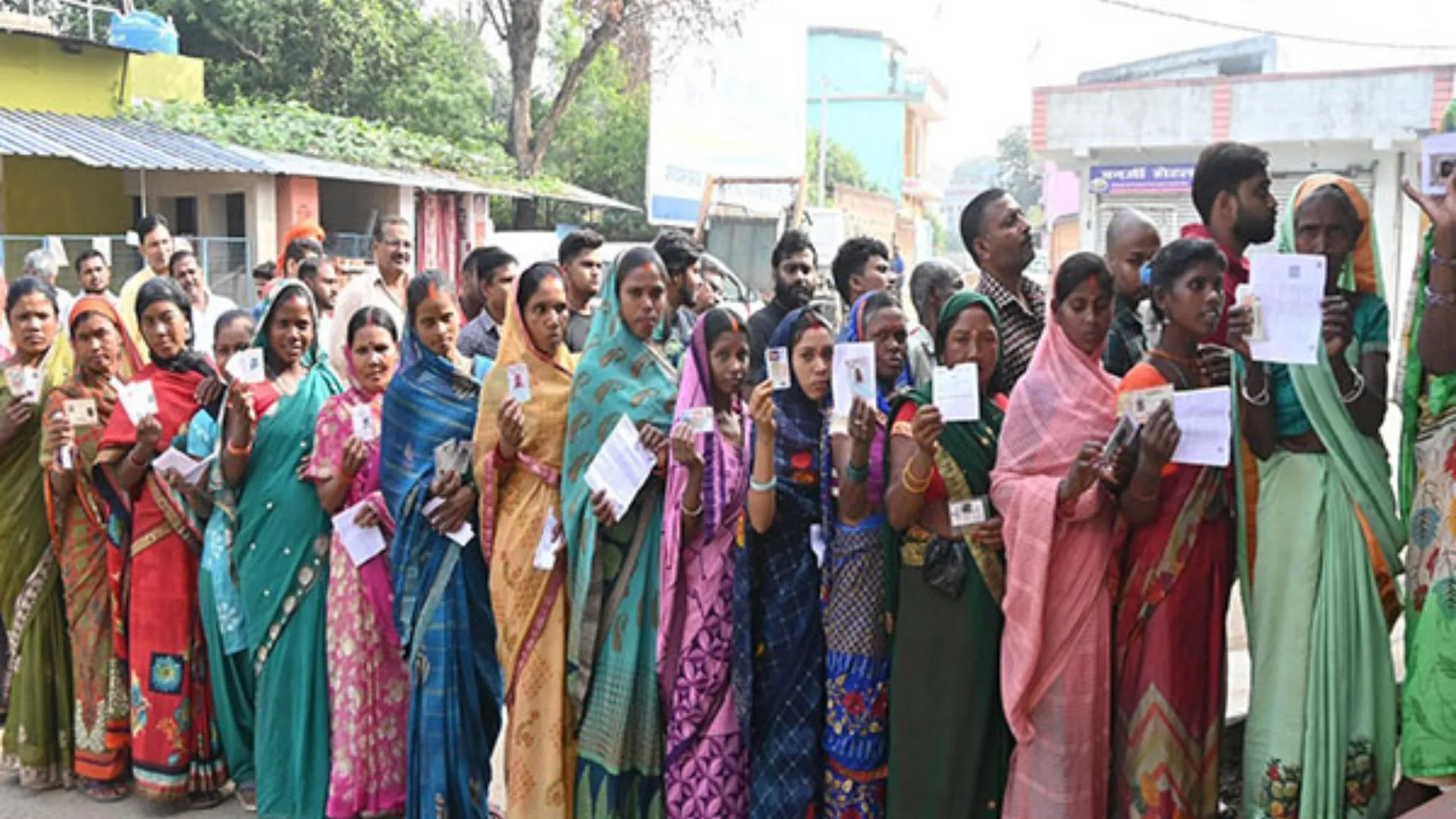Ukraine’s Deputy Foreign Minister Iryna Borovets conveyed appreciation to India for extending humanitarian aid to Ukraine, expressing hope for continued support in the future. Describing India as a robust economic powerhouse, Borovets mentioned plans for discussions with the Indian minister regarding potential economic collaborations.
Asked about the discussions she will hold with the Indian minister, Iryna Borovets said, “We will talk about the global agenda and bilateral agenda, especially bilateral one, because we need a lot of adjustments. For example, for a while already, we didn’t have the visits on the highest level or the high level, on the level of the ministry of foreign affairs or even the president of Ukraine or the Prime Minister Modi.”
“So, we will be talking about this one because personal contacts are very important. I guess we will be talking about possibilities in economy, investments, that’s for sure because India is a powerful economic country in economic terms. India actually helps us in the humanitarian term. I think we received already 15 tranches of humanitarian help, which are generators for the school. So of course, we are very grateful and we will appreciate it if more humanitarian support from India comes in the future,” she added.
She additionally praised Prime Minister Narendra Modi’s declaration, “this is not an era of war,” referring to it as a “significant message.” She remarked that Russia initiated conflict with Ukraine, as the war was enforced on Kyiv by Moscow.
Asked about PM Modi’s “this is not an era of war” statement, Iryna Borovets said, “I think it was a powerful message. I mean, it’s very good that someone told that to Putin, that it’s not an era of war. And unfortunately, Russia dragged us in this era of war because this war was imposed on us. It was not our choice to fight this war. We were living peacefully in Ukraine until Russia attacked us.”
“So, there is no nation in the world as Ukrainian that wants peace more than we do. And we are very grateful for this message. Yes, this is not the era of war, but unfortunately, it is now in Ukraine. In Ukraine, in Europe particularly, it is not an era of peace, unfortunately and this actually affects all the world in terms of food security, nuclear safety and so on,” she added.
During his encounter with Russian President Vladimir Putin at the sidelines of the Shanghai Cooperation Organisation (SCO) Summit in 2022, PM Modi conveyed, “this is not an era of war.” This statement by PM Modi has garnered support from numerous global leaders.
Responding to a question on when the war between Russia and Ukraine will end, she said, “I tell you what as soon as we have the necessary amount of weapon, where we Ukrainian are very capable to liberate all our territories and to restore our territorial integrity within the borders of 1991. So, that is our aim and our strategy and our duty. With all the weapons needed, we will do that because we already showed that we are capable of doing it.”
“In 2022, we stopped the invasion. We liberated 50 per cent of recently occupied territories. In 2023, we actually diminish russian ability to maneuver in a Black Sea, though we secure the grain corridor. So, the grain from Ukraine keep coming through that corridor and we don’t need Russia permission for that. So I think that this temporary stalemate at the front line is very temporary and as soon as we get all the weapon we need, we continue to liberate it. And how long will it take? God only knows,” she added.
She stated that Ukraine values the assistance it receives from various countries amidst the ongoing conflict with Russia. Highlighting shortages in weaponry, especially in ammunition and air defense systems, she mentioned that Kyiv eagerly awaits additional weapon deliveries. Describing the support received by Ukraine as “substantial,” she noted that over 50 nations have been providing aid to them.
On Ukraine receiving support from various nations, Iryna Borovets said, “We appreciate it very much, but it’s not enough, unfortunately, to win right now. You know that now we have a shortage of weapon, especially in ammunition, an air defense system, and because of it, we lost a little bit of territories. Therefore, we are waiting for the additional weapon supplies. Once we have it, we will continue to liberate our territories.”
“But in general, of course, the support around Ukraine is very solid because more than 50 countries are providing help to us, either military or humanitarian and even those country of the Global South who are not supporting us in the military terms, they provide humanitarian helps or they support us in the international organization such as UN respecting our sovereignty and territorial integrity.”
Highlighting the Ukraine’s export of grain, Iryna Borovets said, “We are exporting grain. We’re exporting wheat. We’re exporting oil I think that last year we exported I don’t want to speculate in figures but many many million tons of products especially grain because we have food … around the world and many many countries in Africa for example they rely on oil and depend on Ukrainian grain and oil.”
“So, we do our obligations because we feel responsible for it and if not the war we would export even more and don’t forget that we harvest under the bomb attack so literally a lot of agricultural lands they are very close to the front line or for example they are mined now so we need to demine these territories as well but nevertheless we still export and probably even saw the protest in Europe in neighboring countries like Poland and Hungary that they are farmers protesting that grain from Ukraine entering as a transit to their country. So we are still exporting,” she added.
Iryna Borovets is presently in New Delhi to participate in the Raisina Dialogue, India’s premier conference on geopolitics and geo-economics. The conference, dedicated to tackling the most pressing issues confronting the global community, is taking place in India from February 21st to 23rd.
On February 21, Prime Minister Narendra Modi launched the Raisina Dialogue. Greek Prime Minister Kyriakos Mitsotakis participated in the opening session as the Chief Guest and delivered the keynote speech.

















